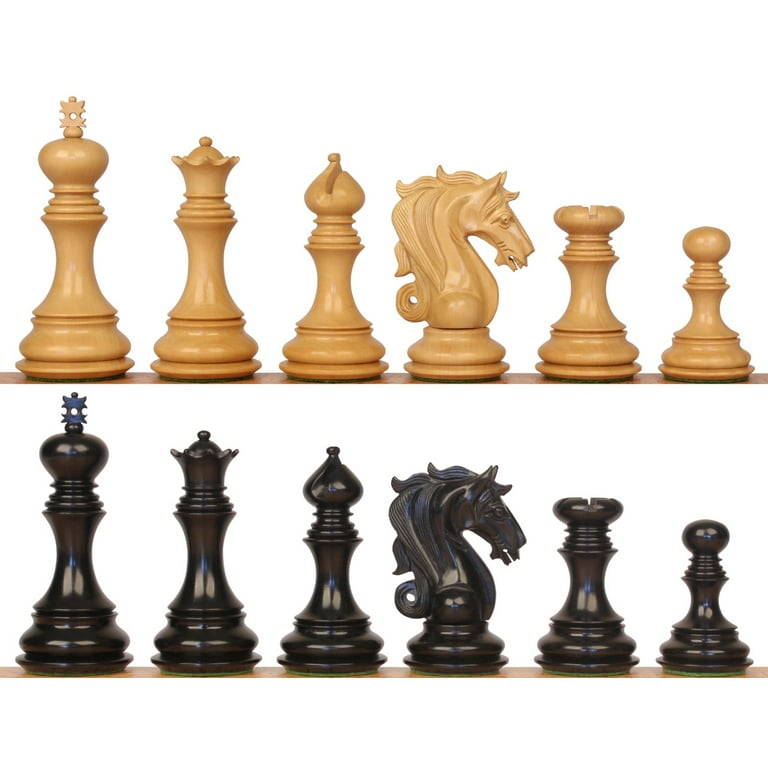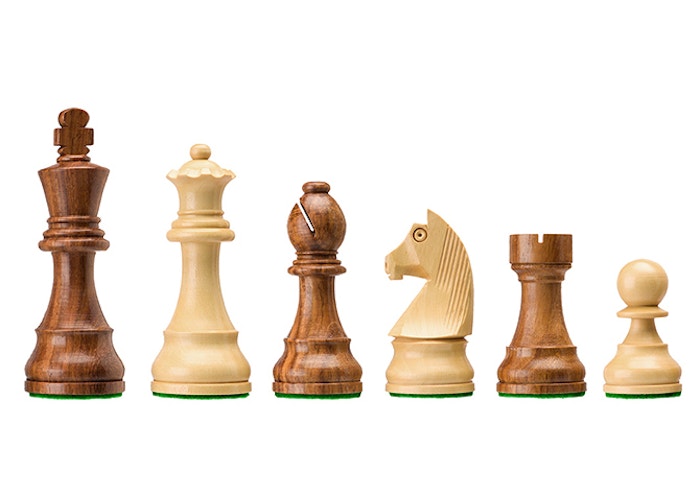How Chess Champions Like Kasparov and Fischer Inspired Generations
Wiki Article
Why You Should Play Chess: The Advantages of Participating In This Ageless Pundit Obstacle
Chess is greater than a simple game; it offers as an extensive mental exercise that develops various cognitive abilities. Players participate in calculated reasoning and create analytical capacities, which can have lasting advantages in day-to-day life. The discipline required for enhancement fosters persistence and resilience. The real essence of chess lies not just in its intellectual needs however in the connections it fosters within a community. Checking out these dimensions exposes much concerning why chess remains classic.Enhancing Cognitive Skills
Playing chess considerably boosts cognitive abilities, making it an important task for people of any ages. The game demands calculated thinking and foresight, needing players to expect their challenger's relocations while creating a winning method. This mental exercise sharpens focus and concentration, vital parts of cognitive feature.
In addition, chess urges creative thinking, triggering players to check out ingenious tactics and unique methods to the game. As they navigate the chessboard, people develop perseverance and strength, important qualities for cognitive growth. On the whole, the multifaceted cognitive advantages of chess make it an enhancing search, advertising lifelong psychological agility and intellectual involvement.
Boosting Problem-Solving Abilities
Many research studies have shown that participating in chess can considerably improve analytic abilities. The video game requires players to analyze complicated settings and prepare for the opponent's actions, fostering crucial thinking skills. As they navigate numerous situations, chess gamers create the capability to review several outcomes and make strategic choices under stress. This process improves their capacity to method real-life issues with a structured mindset.Chess advertises the recognition of patterns and the application of logical reasoning, abilities that are necessary in reliable analytic. Players find out to examine risks and benefits, improving their judgment in unpredictable circumstances. The recurring nature of chess play reinforces these abilities, enabling people to transfer their enhanced analytical capabilities to academic and professional contexts. Inevitably, chess functions as a beneficial device for anybody seeking to hone their logical abilities and enhance their overall cognitive performance in difficult scenarios.
Cultivating Persistence and Self-control
While participating in chess can be an exciting experience, it likewise requires a considerable level of perseverance and technique. Players need to find out to very carefully take into consideration each relocation, weighing possible end results and strategies. This thoughtful strategy fosters a way of thinking that values lasting success over instant gratification. In chess, hasty choices frequently lead to negative effects, reinforcing the value of taking one's time to evaluate the board and prepare for an opponent's feedbacks.
Discipline is more grown via constant technique and research study. Gamers typically devote hours to improving their skills, examining techniques, and evaluating previous games. This commitment to mastering the video game instills a feeling of obligation and perseverance, crucial attributes that prolong past the chessboard. Ultimately, the mix of persistence and discipline not just enhances a player's chess capacities yet likewise adds to individual growth, furnishing people with important devices for navigating challenges in various facets of Look At This life.
Cultivating Creative Thinking and Imagination

Strategizing steps includes not simply reasoning but likewise the capability to anticipate an opponent's feedbacks, motivating gamers to visualize numerous paths and options. As gamers explore various techniques, they find out to introduce and adapt, enhancing their imaginative problem-solving skills.
The video game's complexity welcomes gamers to check out unique concepts and methods, leading to individual styles of play - Chess. This exploration supports a feeling of artistic expression, as each player crafts their own method to obstacles on the board. Inevitably, chess comes to be a canvas for creativity, allowing people to reveal their one-of-a-kind perspectives while creating their imaginative capacities
Building Social Connections and Community
Playing chess supplies chances for individuals to network through events and neighborhood chess clubs. These atmospheres promote connections among gamers, creating a feeling of recreation center around a shared interest. Taking part in these activities not just improves skills yet also builds long-term relationships.Networking With Tournaments
When participants involve in chess tournaments, they often find themselves engaged in a vivid neighborhood of similar people. These events provide a superb system for gamers to forge connections, share strategies, and celebrate their passion for the game. Involving in friendly competition cultivates friendship, as players from varied backgrounds collaborated to challenge each other. Networking opportunities are plentiful, with many participants creating long-term relationships that prolong past the chessboard. Additionally, these events typically attract enrollers and chess enthusiasts, additionally improving the possibility for expert connections. As players involve in conversations about techniques and experiences, they develop a network that can result in future partnerships and possibilities within the chess world and beyond.Local Chess Clubs

Supplying a Fun and Involving Difficulty
Chess uses an uniquely stimulating experience that captivates gamers of all ages, as it incorporates strategic reasoning with the adventure of competition. This ageless video game provides a compelling challenge, motivating individuals to think seriously and creatively. Each match unravels as a fight of wits, where gamers should expect their opponent's relocations while creating their very own methods.The intellectual involvement chess gives is matched by its capacity to captivate. Gamers often find themselves immersed useful link in the game, imp source misplacing time as they browse intricate positions and tactical dilemmas (Chess). This increased emphasis fosters a feeling of achievement, especially when a challenging relocation causes victory
Moreover, chess advertises social communication, permitting gamers to bond over shared experiences and obstacles. The game's countless variations assure that no 2 sessions are alike, maintaining participants passionate to fine-tune their skills and approaches. This dynamic blend of challenge and satisfaction makes chess an alluring search.
Regularly Asked Concerns
Can Chess Be Played Online or in Person?
Chess can be played both online and in person. On the internet systems offer players the benefit of contending against opponents worldwide, while in-person games cultivate social interaction and physical presence, enriching the overall experience.What Age Is Best to Start Learning Chess?
Specialists suggest that youngsters can begin finding out chess as early as age five or 6. At this age, they can understand standard concepts, improving cognitive skills while fostering a love for the video game that lasts a lifetime.Exist Chess Tournaments for Beginners?
Yes, there are chess events especially created for novices. These occasions give a helpful environment for amateur players to get experience, boost their skills, and delight in the competitive spirit of chess without dealing with sophisticated challengers.For how long Does It Require To Come To Be Efficient at Chess?
Ending up being proficient at chess normally requires regular practice over a number of months to years. Aspects such as specific commitment, previous experience, and research study of strategies considerably affect the moment needed to reach a qualified level.What Resources Are Offered for Learning Chess Strategies?
Countless resources exist for discovering chess techniques, consisting of online tutorials, publications by renowned writers, chess applications, and interactive websites. Several players also profit from joining neighborhood clubs or taking part in online forums for real-time insights.Report this wiki page